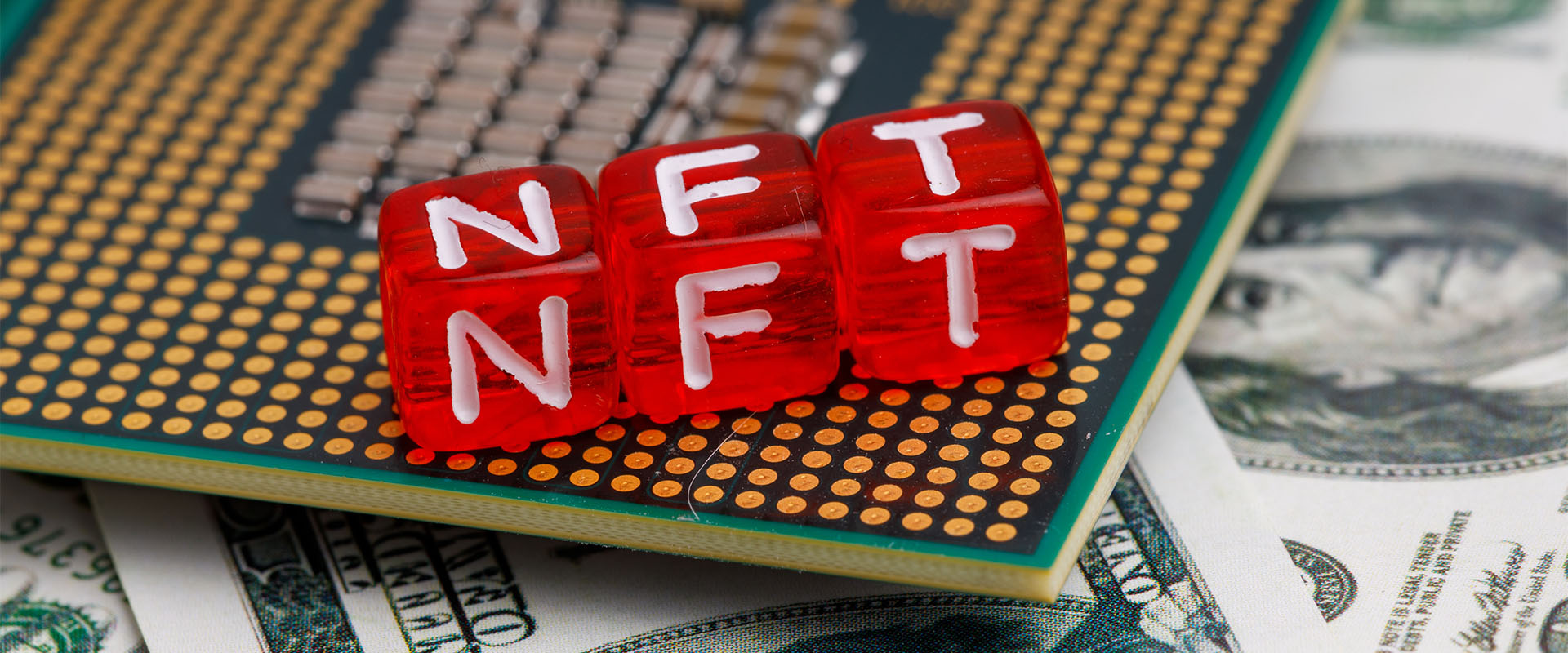As the line between the virtual world and the real thing continues to blur, so too does the line between real intellectual property assets and virtual ones. If you’re interested in IP, you’ve probably been hearing about NFTs, aka “non-fungible tokens.” I’ve written about them before in my blog with the article, “What’s a Non-Fungible Token (NFT) and Why You Should Care,” so I won’t go into a lot of what makes and NFT and NFT other than a few basics to set the context for today’s discussion on how trademarks and copyrights are being affected by NFTs.
Some Context
Non-Fungible Tokens (NFTs) are a type of digital asset, mostly used to verify ownership of digital goods. Like cryptocurrencies, they verify authenticity using a blockchain ledger—a type of database that stores information in groups or “blocks” forming an encrypted chain of information.
NFTs are unique, one-of-a-kind. They’re like an original painting an artist has autographed. There’s not another one like it.
NFTs are digital and they’re identified through blockchain technology that indicates what it is, its value, who owns it, and what rights the owner has. It’s like having a built-in certificate of authenticity for digital goods that cannot be altered.
With memorabilia and collectibles companies, athletes, celebrities, musicians, artists, publishers, and many other industries either diving headfirst or dipping their toes into the wonderful world of NFTs, it’s no wonder their impact on intellectual property law is becoming a popular topic of discussion. Some high-end fashion houses have begun to sell “digital fashion” versions of physical items, and vice versa. With all this interest in NFTs, IP owners, lawyers, and the courts have taken greater interest in what it all means now and where it could be headed.
Copyrights & NFTs
One of the biggest areas of concern currently is for buyers and sellers of NFTs to understand exactly what it is they are selling/buying. That might seem self-evident, but it’s important to know that when buying an NFT, copyright is not automatically conveyed.
In the case of an NFT representing a digital asset, which is quite common, buying said asset usually grants the purchaser a license for noncommercial use only and a digitally-authenticated certificate that verifies ownership—but nothing more.
The creator of the work retains the copyright unless he or she specifically assigns copyright to the buyer. Without the copyright, the buyer may own the NFT and may even display it, watch it, or listen to it for personal use, but he or she cannot legally sell copies of the NFT or artwork associated with it to display on websites and other media, or even T-shirts, hats or printed materials, or do any of the other things copyright owners typically do.
In a nutshell, unless specified, the creator of the NFT retains the copyright even if the original or a copy of the NFT is sold. Just as sellers need to be aware of what they’re selling, buyers need to be aware of what they’re buying—including any rights.
Trademarks
In the area of trademarks, many top brands are using blockchain technology to authenticate purchases for their customers. That way, for example, if someone buys a pair of collectible Nikes, or buys a ticket to a premier sporting event, he or she knows it’s the real, one-of-a-kind item and not some knock-off.
Some companies are releasing of NFT “digital content” packages in connection with the release of exclusive digital content for fans and customers. It’s an approach that clearly has the potential to broaden the distribution of trademarked, branded content to the masses, but it also gives rise to what those acquiring NFT “digital content” packages that include a brand’s marks and information can actually do with it. Those acquiring such digital packages, must pay particular attention to what is and what is not permitted, otherwise they may find themselves on the wrong side of trademark law.
Unauthorized NFTs that make commercial use of a brand’s reputation clearly presents a potential for trademark infringement. One good, current example of this is Hermès v. MetaBirkins.
A May 2022 article on JDSupra.com reports that in “December 2021, Hermès, which owns the rights in the famous ‘Birkin’ handbag design, filed a lawsuit against digital designer Mason Rothschild, claiming that he was infringing Hermès’ trademark rights by creating, and selling NFTs for, so-called ‘MetaBirkins’—digital handbags in the same shape as Birkins but depicted in fake fur and lurid colors.”
Hermès argues that Rothschild is infringing on its trademark and that his MetaBirkins are confusing to consumers who assume the source of the NFTs is Hermès.
The courts are yet to decide. When they do, the wager here is that they will apply well-established, current trademark doctrine to the newfangled NFTs—setting legal precedent that will inform a great many other cases pending and those yet to come.
Some companies, recognizing the business opportunities NFTs represent, have adopted the strategy of working with NFT creators rather than fighting them in court. Through collaboration, these company’s hope to assert greater control over the process and utilize the NFT creators to boost their brands and open up additional channels for publicity and revenue. Ironically, it seems the greatest challenge going forward for IP law will be for it to keep up with the new technologies and innovations impacting the IP landscape, the very kinds of things (new technologies and innovation) IP law is designed to protect. With so much at stake, those who operate in the IP space can rest assured that there will be no shortage of solutions or approaches tried to get a handle on what is and is not permitted with respect to NFTs and brand IP rights.
Let’s Work Together
Contact Eric Ludwig today for a one-hour consultation to discuss how your client can benefit from the Pre-Litigation Process. (619) 929-0873 | consultation@ludwigiplaw.com



